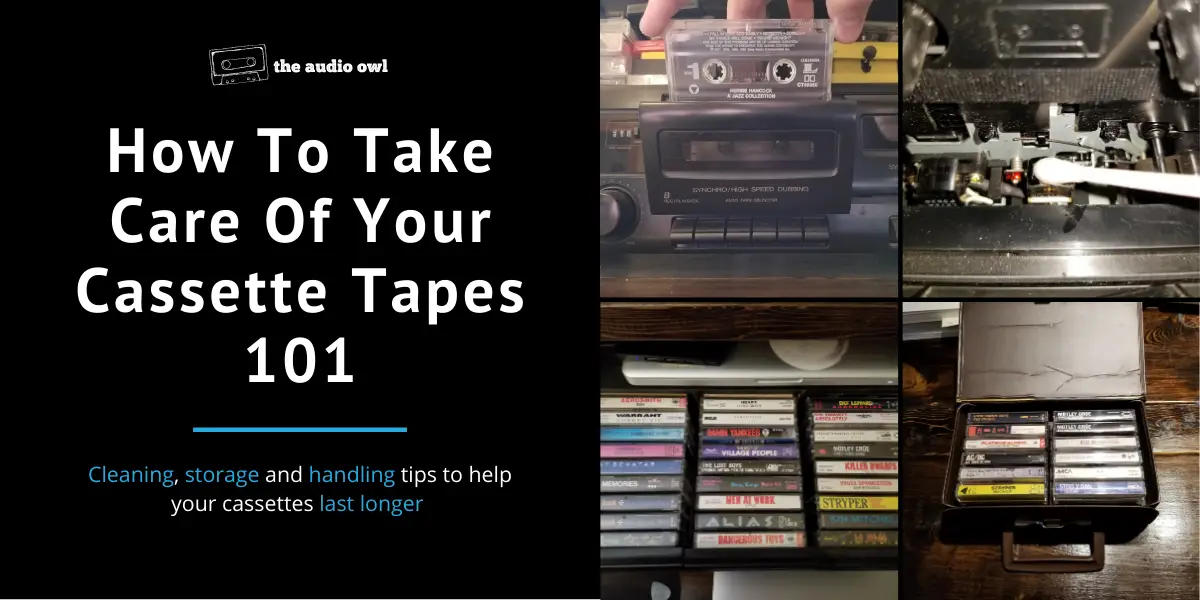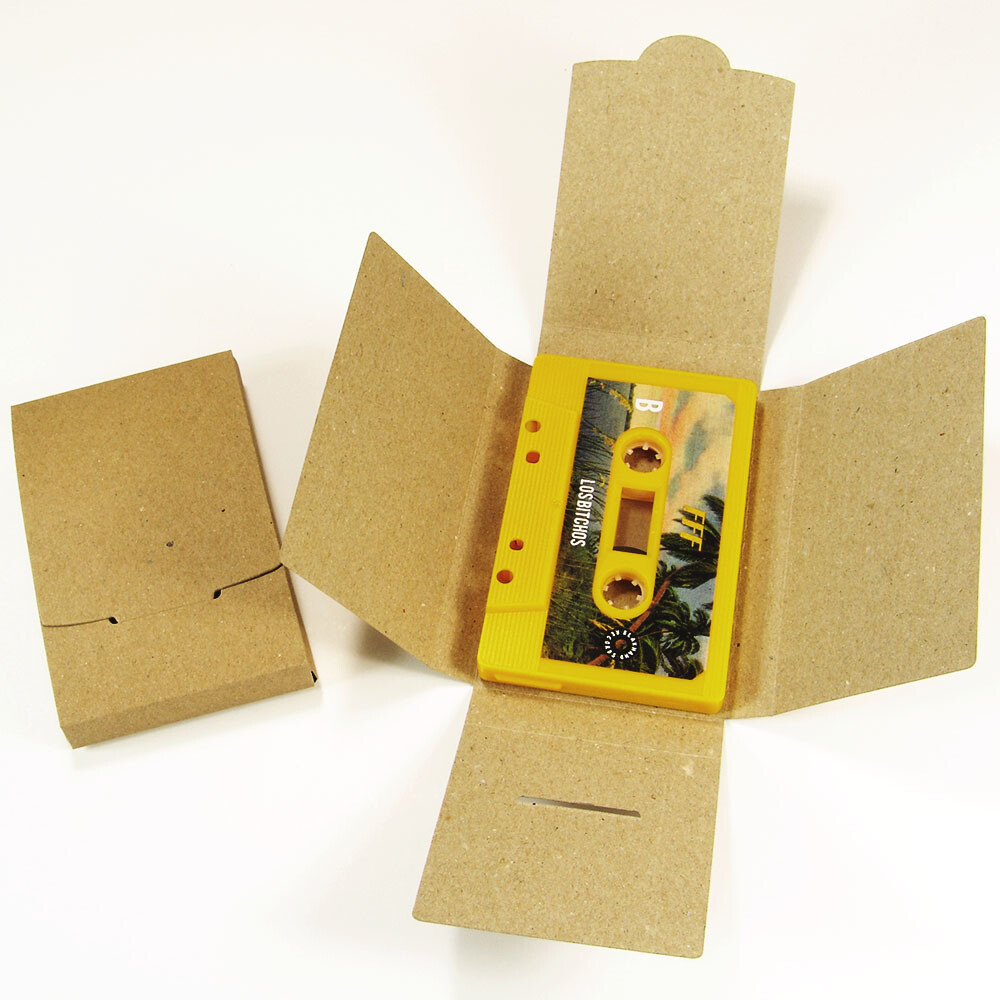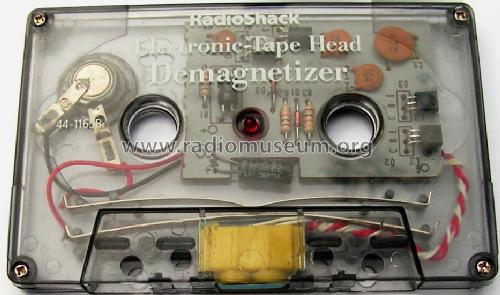Keeping your cassettes in mint condition is a two-pronged approach. Both the cassette tape and the cassette deck play a part in the preservation of your audio.
Taking care of your cassette tapes means storing them in the proper environment and temperature. It also means handling them with care when you play them.
Taking care of your cassette player means keeping the tape heads clean and making sure the mechanics work smoothly.
Taking Care of Your Cassette Tapes
Something we tend to take for granted now is the preservation of physical audio. Most of us are used to streaming our music or listening to a digital copy. But for analog audio enthusiasts listening to music means so much more than just pressing play.
Taking care of you physical copies is crucial to ensuring they last long and sound great. It is important that you store and handle your cassettes properly. Let’s take a look at the proper handling and storage of cassette tapes.
Handling
Analog media tends to be a bit sensitive, records can skip, tape can jam, CDs can skip. This is why it is crucial to handle them with care.
Before you open the jewel case, make sure your hands are clean. Grime, sweat and dust can accumulate on a cassette over time and render it useless.
Open the jewel case. When you open the case, make sure to open it carefully, if it gets stuck a little try to find out why rather than forcing it open.
Pick the cassette out of the case by grabbing the sides of the cassette with your fingers. You want to keep contact with the reels and play area to a minimum.
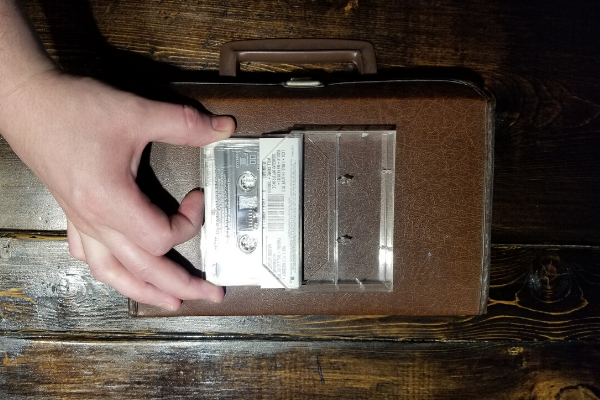
Gently slide the cassette into the cassette deck and close the door if your deck has one.
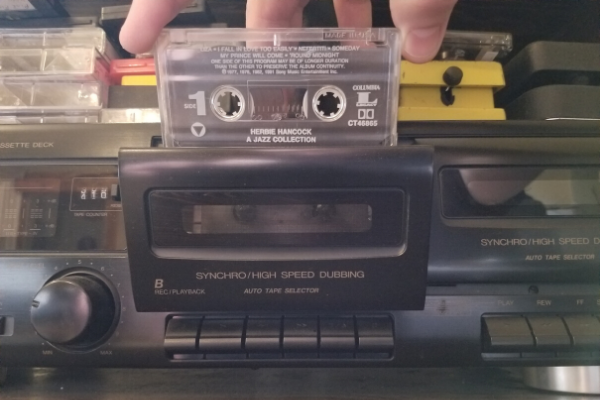
Don’t touch the tape, your fingers have natural oils and grime that can dirty up the cassette tape inside.
If you want to be super careful with your tapes, wear gloves while handling them. This is obviously an extreme step for the average user but may come in handy if you have a rare tape.
Storage
Storage of your cassette tape is probably the most important factor in its longevity. It is also something we tend to neglect. I’m looking at a Herbie Hancock tape right now that I definitely have not store properly. Don’t worry, it’s only a Columbia version.
Here are the key elements to proper cassette tape storage:
- Dry and dust free
- Temperature
- Orientation
Dry and dust free
Your tapes should be stored in a dry and dust free environment. Keep the tapes in their jewel cases and inside some sort of tape storage unit like the ones below.
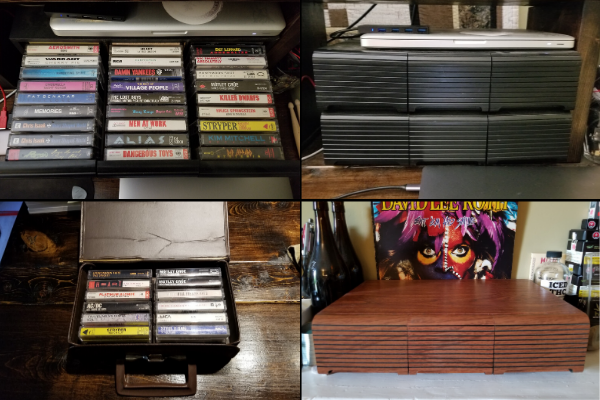
If you want to go the extra distance, you can then store those cassette tape holders in something like a hutch or corner cabinet. Keeping the case holders in the cabinet will help keep dust away from the cases and thus away from your tapes.
If you have lost the jewel case and the tapes are loose, you can use thing cardboard to make some tape protectors.
Keep away from magnets and electrical appliances
Electrical appliances and magnets could potentially erase any data that might be on the tape. You want to make sure you keep your cassette tapes stored away from amplifiers, speaker cabinets and older computer monitors.
Keep them away from any electrical appliance as well.
Don’t store cassettes in your basement
Unless you have a finished basement that is temperature controlled, don’t store your tapes in your basement. The damp environment is not good for the tape and the moisture can cause mould to grow on and inside the tape.
You want to store your tapes in an environment with a relative humidity of 20-40%.
Temperature
Because tapes are usually made with a plastic shell, they are sensitive to temperature changes.
Storing tapes above 70F or in direct sunlight will promote warping in the plastic which could potentially lock up the cassette. High temperatures also affect the tape, especially if the cassette is a cheaper variety.
The higher temperatures can cause the tape itself to flake apart which means the audio stored on those tapes is gone.
You want to avoid keeping your tapes in freezing temperatures too. When the air around the tape freezes it can potentially freeze moisture as well. If the moisture thaws and melts it could then promote mould growth on the tape.
Orientation
There has been much debate over whether you should store your tapes standing up or laying down. We like to store them standing up.
When tapes are stored laying down, the reels could potentially stick to the wall of the casing.
However if the tape is stored standing up the reels are hung vertically. This does mean that there will be constant weight on the tape that is resting about the reel.
To fix this we need to make sure that we take our tapes out of storage every now and then and either play them or give them a quick fast-forward and rewind. This helps to keep the tape in good shape and you get to listen to your favourite albums!
Taking Care of Your Cassette Player
If you want to keep your tapes in good working order, you also need to keep your cassette player in good working order. After everyone 100 hours of play or so you will want to do the following.
Clean Cassette Deck Playback Heads
Clean your play heads with 92% (or higher) isopropyl alcohol on a cotton swab. Make sure it is a good quality swap so it does not leave too much cotton behind.
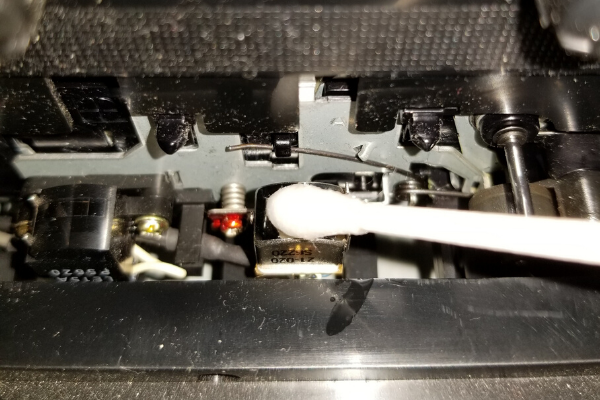
The isopropyl works to clean the play heads (and record/erase heads if you have them), this will help keep the tape of your cassette clean and free of debris. Any dust or debris on the play head can contribute to the degradation of the cassette tape.
Clean Pinch Rollers
Keeping your pinch rollers clean is also crucial. These parts are what help drive the tape past the play heads, so any dirt or dust on them will coat the tape as it passes through. This will lead to audio loss and degradation.

You should not use isopropyl alcohol to clean these as it will dry out the rubber wheel. Once the wheel is dried out it will be come brittle and start falling apart which can ruin tapes for sure.
Instead use Naptha and a cotton swab to clean these parts.
Demagnetize Your Cassette Decks
Cassette decks will start to build up a magnetic field the more that tapes are played. This magnetic field could possibly corrupt the data on any tapes you play.
To fix this issue, use a tape demagnetizer to remove the magnetic field. You can find demagnetizers that look like cassette tapes and all you have to do is pop the cassette into the deck and press play.
There is also a pen style demagnetizer that works just as well, these can be found on Amazon. Simply plug it in and rub it over the play head a few times to remove the magnetic field build up.
Make sure to turn off and unplug your cassette deck when you use the demagnetizer.
Also, make sure to keep the demagnetizer wand away from your cassette tapes. IT WILL ERASE THEM!
If you follow these steps and store your cassettes properly, you should be able to enjoy your favourite tapes for much longer.
Enjoy!
Author: Mike P
Hi! My name is Mike! I’ve been an apartment producer/musician for 10+ years. I’ve played in punk bands, released EDM tunes on Beatport and iTunes, and have a semi-successful stock music portfolio. Read more…


